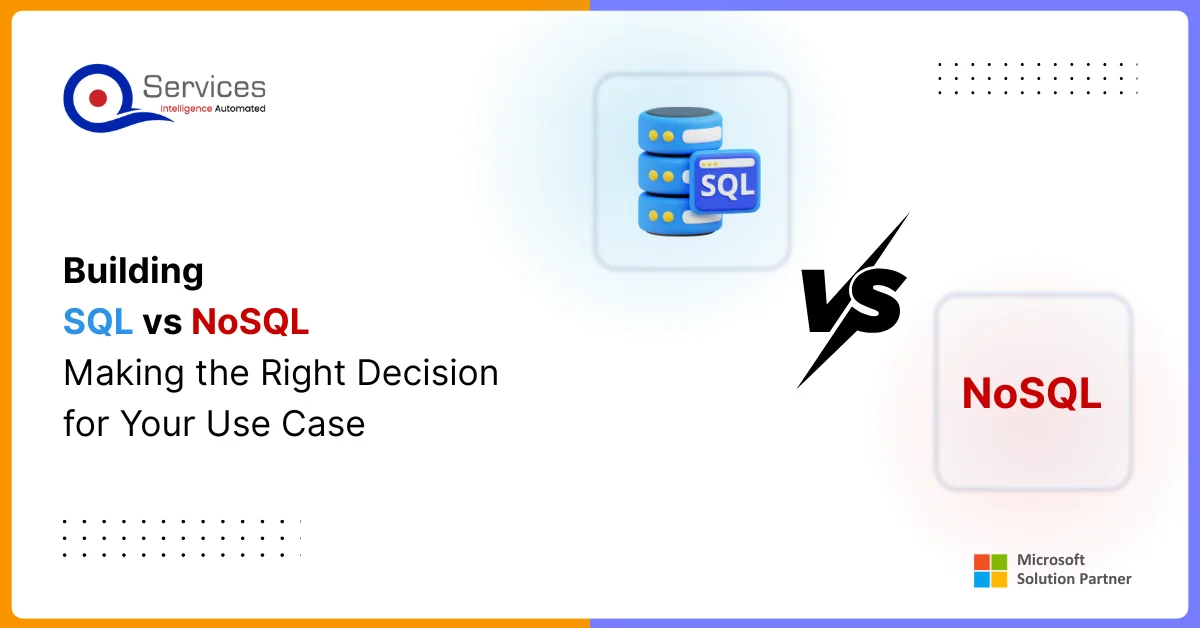
Home » How AI-Powered Applications are Redefining Logistics and Supply Chain Management ?

AI is shaking up logistics and supply chain management like never before. A Marketsand Markets report predicts that the AI in supply chain market will soar from $730 million in 2020 to a whopping $10.1 billion by 2025, with a CAGR of 45.3%. This explosive growth shows just how powerful AI can be in making operations more efficient, cutting costs, and improving decision-making.
In our fast-paced, competitive world, top-notch logistics and supply chain management are key to business success. AI-powered applications are transforming these areas, offering new ways to streamline operations, optimize resources, and boost overall performance. From predictive analytics and automated inventory management to route optimization and real-time monitoring, AI helps companies make smarter, quicker decisions. This tech-driven shift not only ramps up efficiency but also slashes costs, reduces risks, and enhances customer satisfaction. In this article, we’ll dive into how AI is redefining logistics and supply chain management, highlighting the latest technologies and applications.
Ever wondered how some retailers seem to magically have the right amount of stock just when you need it? It’s not magic, it’s AI.
Gone are the days of guesswork in demand forecasting. AI now ensures pinpoint accuracy by analyzing historical sales data to spot patterns like “ice cream sales spike in summer” or “electronics surge during holidays.” It even factors in external variables such as weather forecasts and local events. For instance, a heatwave prompts AI to forecast higher demand for cooling products, while an upcoming snowstorm leads to stock adjustments for essentials.
A prime example of AI’s impact on demand forecasting is Walmart. By integrating historical data, weather conditions, and local events, Walmart optimizes inventory levels, reduces stockouts, and boosts customer satisfaction by aligning product availability with actual demand.
When it comes to inventory, AI is the ultimate game-changer. It helps keep inventory levels just right, avoiding the pitfalls of overstocking (which ties up your cash) and stockouts (which can drive customers away). With AI analyzing real-time data, businesses get spot-on recommendations for when and how much to reorder.
And automation? AI’s got it covered. As an e-commerce site where AI handles reorders automatically as soon as stock levels dip. No more manual checks or frantic restocking efforts—just seamless, efficient inventory management.
Get free Consultation and let us know your project idea to turn into an amazing digital product.
AI-powered applications revolutionize route optimization by leveraging real-time data to determine the most efficient delivery paths. These advanced systems continuously analyze traffic conditions, road closures, and weather updates to dynamically adjust routes, ensuring that deliveries are made as swiftly and efficiently as possible.
The benefits are substantial: reduced fuel consumption, faster delivery times, and lower operational costs. By optimizing routes, AI enhances overall operational efficiency and reliability, enabling businesses to streamline their logistics processes and improve service delivery. This is further enhanced by IoT application development services, which integrate real-time data and analytics to fine-tune route optimization and drive logistics efficiency.
The integration of IoT in fleet management offers significant advancements in monitoring and control. IoT sensors provide real-time insights into vehicle conditions, driver behavior, and location tracking, creating a comprehensive view of fleet performance.
This technology brings numerous advantages: improved fleet efficiency, enhanced safety, and proactive maintenance. By utilizing IoT data, businesses can make informed decisions, minimize downtime, and ensure that their fleets operate smoothly and effectively e.g. My Delivery. IoT transforms fleet management from a reactive approach to a proactive, data-driven strategy.
AI and robotics streamline warehouse operations by automating sorting, packing, and labeling tasks. These advanced systems enhance processing speed and accuracy, optimizing overall efficiency and reducing errors.
IoT devices continuously monitor environmental conditions such as temperature and humidity to ensure proper storage. This real-time data helps minimize spoilage and maintain compliance with storage standards, thereby improving product quality and operational efficiency.
AI-powered chatbots and virtual assistants are redefining the customer service landscape. These intelligent systems handle inquiries and provide real-time shipment updates with unparalleled efficiency. For example, FedEx’s virtual assistant offers instant responses to customer queries, from tracking parcels to answering service questions, all available 24/7. This round-the-clock capability not only elevates customer satisfaction but also significantly lightens the load for service teams. By automating routine interactions and ensuring quick, accurate responses, chatbots streamline communication and enhance the overall customer experience.
AI transforms customer interactions through personalized recommendations. By analyzing data such as browsing history, purchase patterns, and individual preferences, AI tailors product suggestions and promotions to each customer. For example, Amazon’s recommendation engine uses AI to suggest products based on past purchases and browsing behavior, leading to higher engagement and increased sales. Similarly, a logistics company might leverage AI to offer targeted services or products, such as premium shipping options, based on a customer’s past choices. This personalized approach boosts customer engagement, drives conversion rates, and enhances overall loyalty.
The intersection of AI, IoT, and risk management is revolutionizing how businesses handle supply chain disruptions and compliance.
AI is essential for identifying, assessing, and mitigating risks in supply chains. Here are some key aspects:
Researchers have applied AI to replace traditional image processing techniques in risk assessment. For example, AI can identify hazards, evaluate risks, and recommend control measures more effectively.
AI enhances risk assessment by providing rapid and detailed insights. It improves accuracy, relevance, practicality, and response time. However, AI’s limitations in contextual interpretation highlight the importance of combining technology with domain-specific expertise.
Algorithms like Random Forests, Gradient Boosting, and Support Vector Machines analyze historical data to predict risks.
NLP models extract insights from textual data, such as contracts, regulations, and compliance documents.
AI-driven predictive models forecast potential disruptions based on historical patterns and real-time data.
Role of IoT: IoT devices enhance compliance monitoring and risk detection in supply chains:
IoT sensors track goods, environmental conditions (e.g., temperature, humidity), and transportation routes. This data ensures compliance with regulations, such as food safety and pharmaceutical storage.
IoT devices identify deviations from expected behavior. For instance:
Temperature Fluctuations: An IoT sensor detects temperature spikes in a refrigerated container, signaling a potential risk to perishable goods.
Geolocation Tracking: IoT-enabled geolocation ensures adherence to transportation routes and prevents unauthorized diversions.
Combining IoT with blockchain technology ensures transparency, traceability, and tamper-proof records, critical for compliance.
Balancing data collection for risk assessment with privacy concerns remains a challenge.
Ensuring seamless communication between diverse IoT devices and AI systems is crucial.
Integrating AI insights with human expertise enhances contextual understanding.
Ongoing research should explore the effective integration of AI and IoT into risk assessment frameworks.
By leveraging AI and IoT, businesses can enhance their supply chain management software to better predict and mitigate risks, ensuring smoother and more reliable supply chain operations. This integration of AI and IoT into supply chain management software not only enhances compliance but also provides a more proactive approach to managing potential disruptions.

The logistics sector is rapidly embracing cutting-edge technologies to drive efficiency and optimize operations. Microsoft Azure’s suite of tools—comprising Azure Machine Learning, Azure Cognitive Services, and industry IoT solutions —is at the forefront of this transformation. By leveraging these advanced technologies, businesses can enhance their supply chain management, improve decision-making, and effectively manage risks, leading to more streamlined and resilient logistics operations.
Predictive Analytics and Automation: Azure Machine Learning (Azure ML) helps logistics companies use predictive analytics and automate complex processes. By analyzing historical data and identifying patterns, Azure ML can predict future trends and potential disruptions. This allows logistics companies to address issues before they arise, optimizing their supply chain operations.
Example: By assessing data from multiple sources, a logistics company using Azure ML can forecast demand variations, spot possible bottlenecks, and recommend ideal inventory levels. This reduces extra stock, maintains a balanced inventory, and guarantees on-time delivery. Azure ML can also automate route planning, which guarantees that deliveries follow the most direct routes and cuts down on delivery times and fuel use.
Enhancing Logistics through NLP and Computer Vision: Azure Cognitive Services offer powerful tools for natural language processing (NLP) and computer vision, which are particularly beneficial for logistics.
NLP can analyze and understand textual data, such as customer inquiries, feedback, and logistics documents. This helps automate document processing, extract relevant information, and respond to customer queries more efficiently.
Computer vision technology can process and analyze visual data. For instance, it can recognize and categorize images of goods, detect anomalies in shipments, and monitor the condition of products.
Manual labor and mistakes are decreased when logistical documents like invoices, shipping manifests, and delivery receipts are processed automatically.
AI-driven systems are able to identify unusualities in shipment information or photos, warning businesses about possible problems like faulty deliveries or damaged items.
By comparing shipment contents to packing lists, computer vision can ensure correctness and minimize inconsistencies.
Azure IoT Solutions are transforming logistics operations by offering advanced real-time monitoring and data analysis capabilities. These solutions integrate seamlessly with existing logistics systems, enabling companies to collect and analyze data from various IoT devices, such as sensors and trackers. This integration helps enhance efficiency, ensure product quality, and improve overall supply chain management.
Real-Time Monitoring and Data Collection: Azure IoT Solutions leverages a network of IoT devices to gather critical data across the supply chain. This includes monitoring the condition of goods, tracking vehicle locations, and assessing environmental factors. Here’s how it works:
Temperature and Humidity Monitoring: IoT sensors keep track of the temperature and humidity of perishable goods during storage and transport. This ensures products are stored in the best conditions, reducing the chance of spoilage and waste. For example, sensors can monitor a shipment of pharmaceuticals to ensure it stays within the required temperature range throughout its journey.
Condition Monitoring: Sensors can detect and report on the condition of goods, such as vibrations, impacts, or exposure to harmful elements. This data helps identify potential damage during transport so immediate action can be taken.
Vehicle Tracking: GPS-enabled IoT trackers provide real-time location data for vehicles transporting goods. This helps optimize delivery routes, improve fuel efficiency, and ensure timely deliveries. For example, if a vehicle goes off its planned route, the system can alert the logistics manager to check and take necessary action.
Azure IoT Solutions help logistics companies by analyzing data from devices in real time. Here’s how it works:
Fixing Supply Chain Issues: It finds and fixes problems, like delays in delivery routes, and suggests better routes or schedule changes.
Preventing Breakdowns: Sensors track the health of vehicles and equipment, predicting when they need maintenance to avoid sudden breakdowns.
Staying Compliant: It keeps records to make sure everything meets industry rules, like for food and pharmaceuticals, and makes reporting for audits and inspections easier.
For instance, a logistics company that transports perishable goods, such as fresh produce, can greatly benefit from Azure IoT Solutions. By working with IoT service providers, the company can implement real-time monitoring of temperature and humidity for its shipments. If a sensor detects a temperature spike that could jeopardize the quality of the produce, the system can immediately alert the logistics team. They can then take corrective actions, such as rerouting the shipment to a nearby facility with proper refrigeration or adjusting the truck’s cooling system.
Furthermore, by analyzing data from previous shipments, the company can identify patterns and trends that impact delivery times and product quality. This information can be used to optimize routes, improve scheduling, and enhance overall efficiency.
Integrating AI and IoT into supply chain management represents a significant leap forward in optimizing logistics and risk management. AI enhances route optimization by analyzing real-time data to ensure the most efficient delivery paths, while IoT applications provide crucial real-time monitoring of conditions such as temperature and humidity. These technologies collectively enable businesses to predict and mitigate risks effectively, streamline operations, and improve compliance with regulatory standards. By leveraging advanced supply chain management software, companies can not only respond proactively to disruptions but also enhance overall efficiency, reduce costs, and deliver better service.
For further insights into how advanced technologies are shaping the future of supply chain management, check out our previous blog, “How Generative AI is Transforming Supply Chain Management.“
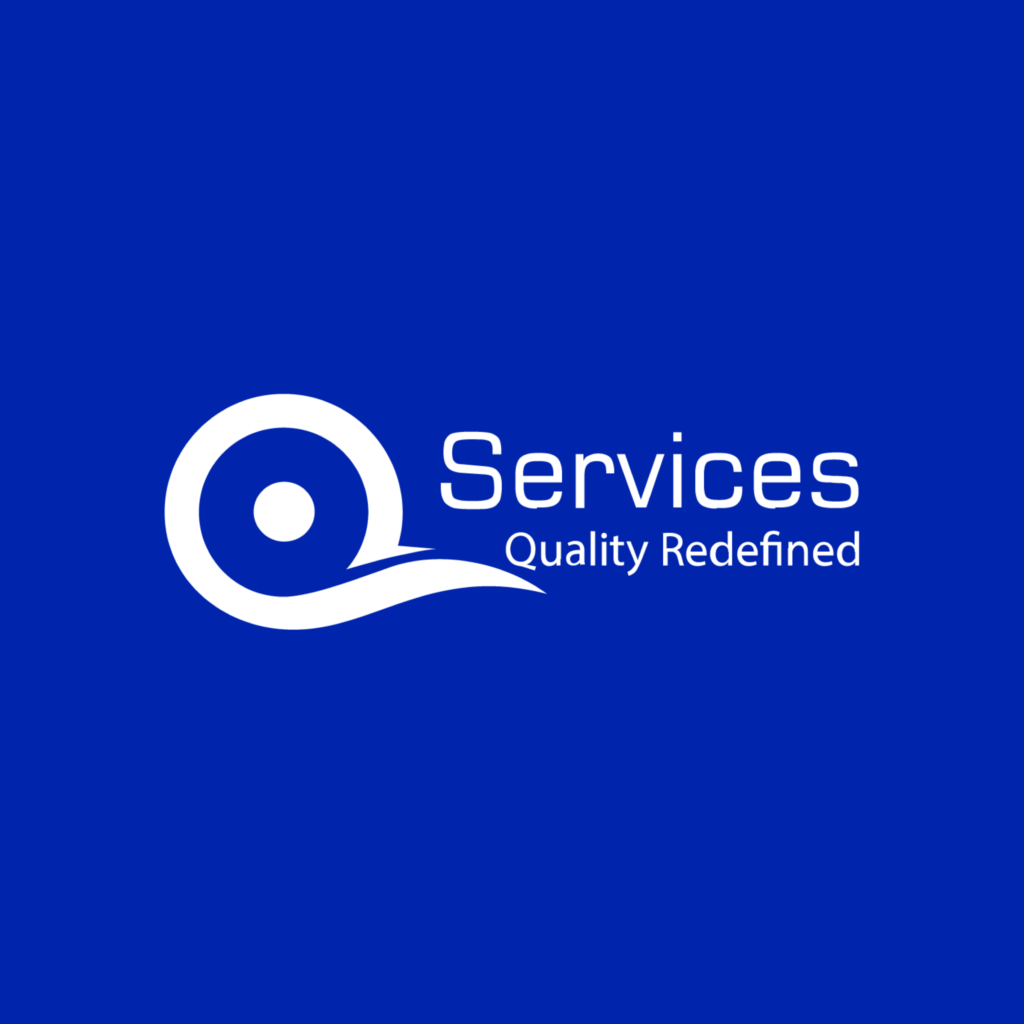
Our Articles are a precise collection of research and work done throughout our projects as well as our expert Foresight for the upcoming Changes in the IT Industry. We are a premier software and mobile application development firm, catering specifically to small and medium-sized businesses (SMBs). As a Microsoft Certified company, we offer a suite of services encompassing Software and Mobile Application Development, Microsoft Azure, Dynamics 365 CRM, and Microsoft PowerAutomate. Our team, comprising 90 skilled professionals, is dedicated to driving digital and app innovation, ensuring our clients receive top-tier, tailor-made solutions that align with their unique business needs.
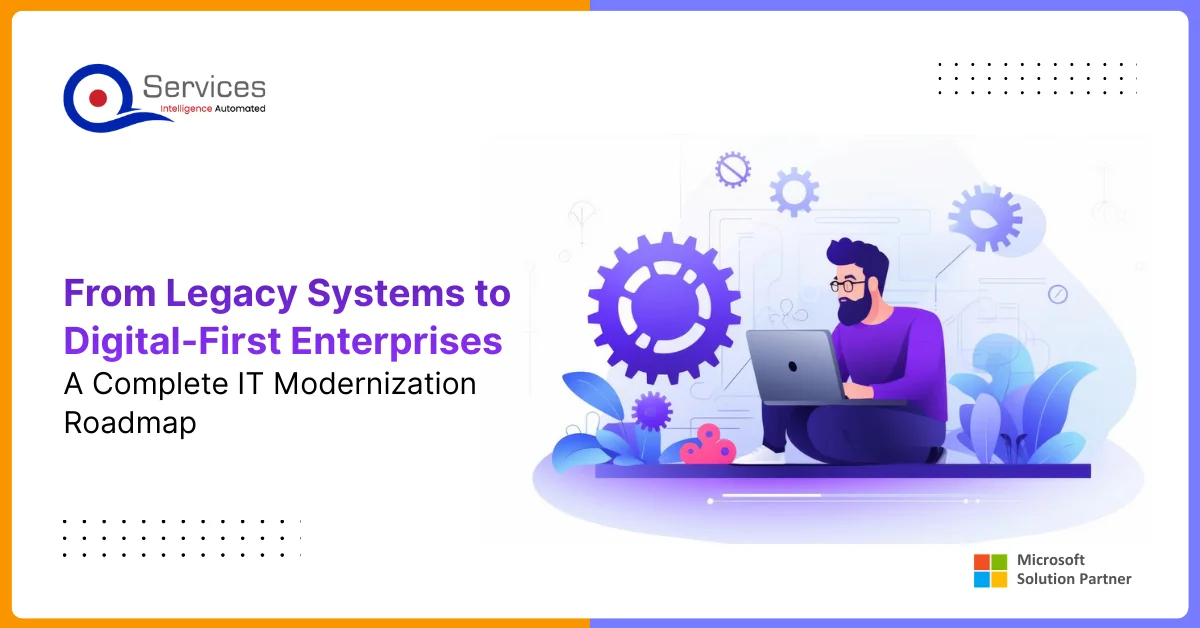
Most enterprises did not choose to be here. Core systems were built to be stable, not adaptable. Over time, layers of customization, integrations, and workarounds turned reliability into rigidity. Today, every new digital initiative feels harder than it should be.
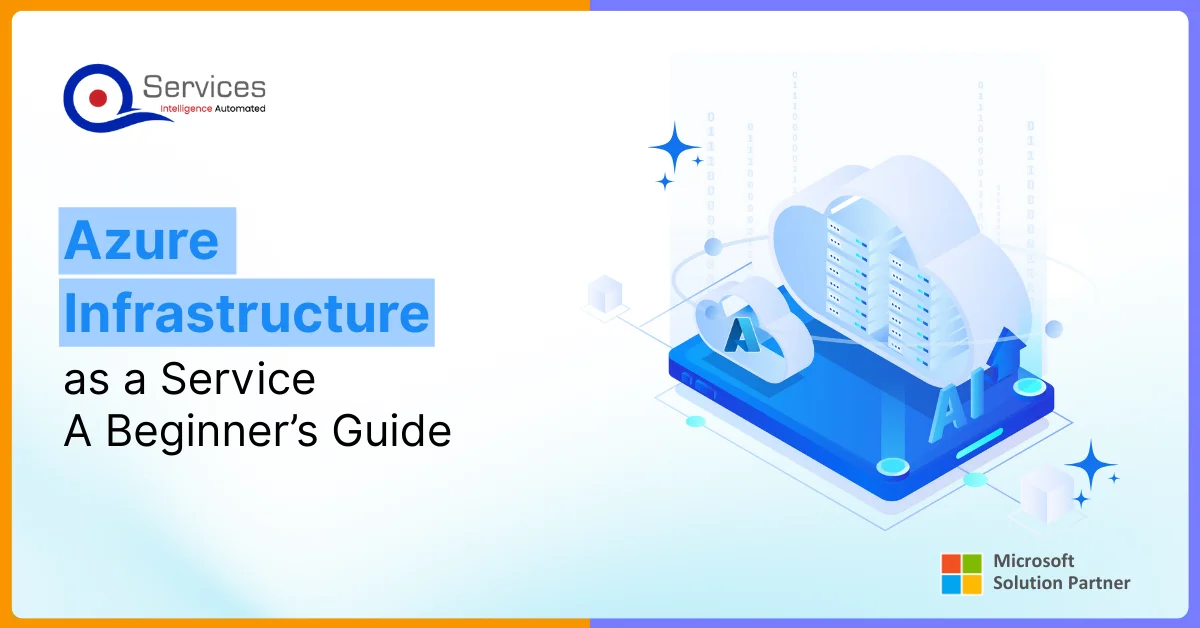
A common industry saying goes, “The cloud does not remove complexity, it moves it.” With Azure IaaS, teams gain the ability to deploy Azure virtual machines, configure networks, and manage storage in a way that closely mirrors on-premise environments. This makes Microsoft Azure IaaS especially attractive for legacy applications, regulated workloads, and hybrid cloud strategies.
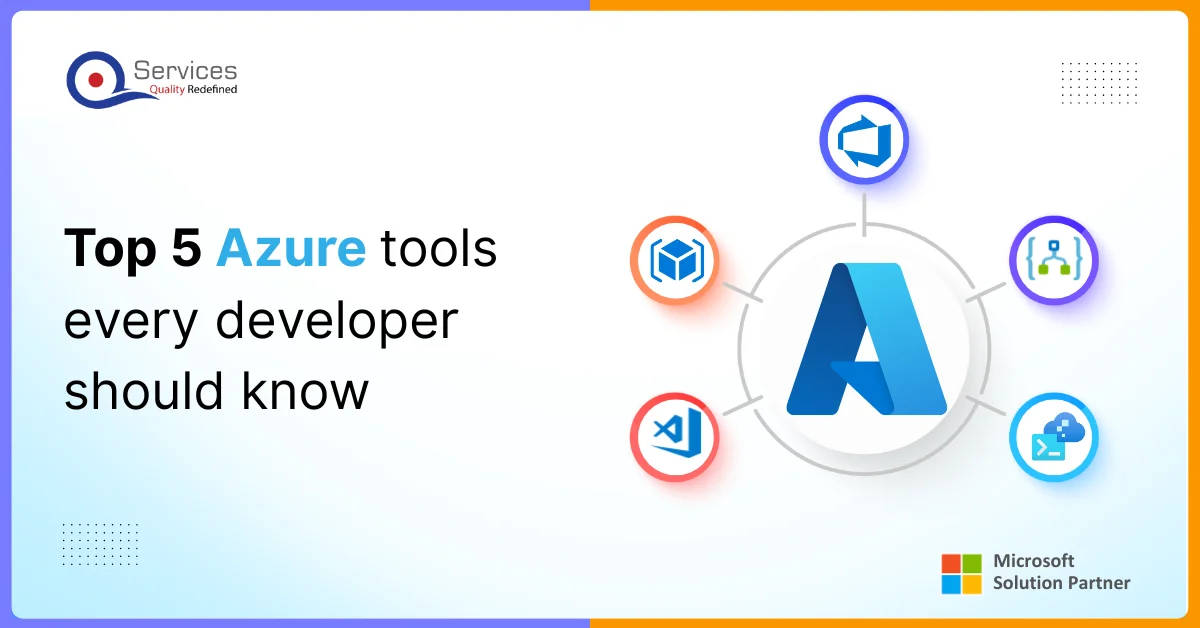
In 2026, it’s vital for every developer to be skilled in using the right set of Azure developer tools for cloud projects. Microsoft’s Azure cloud platform is at the center of this shift, providing a wide range of solutions for building and managing apps. With cloud development with Azure, teams can launch reliable apps that scale globally and respond to business needs in real time. Picking the right items from the Azure tools list can save time, money, and help you get better results.
AI enhances supply chain and logistics by analyzing vast amounts of data to optimize operations. It predicts demand, improves inventory management, and streamlines route planning through real-time data analysis. AI-driven systems can identify inefficiencies, forecast potential disruptions, and automate processes, leading to reduced costs, faster deliveries, and improved overall efficiency.
Logistics and transportation will be greatly improved by artificial intelligence through increased route optimization, work automation in warehouses, and maintenance demand prediction. AI can analyze real-time data to predict when equipment or trucks will need maintenance, automate warehouse sorting and packing procedures, and identify the most effective delivery routes. Faster delivery times, lower operating costs, and greater supply chain efficiency are the results of this.
AI enhances supply chain sustainability in several keyways. By using predictive analytics, AI helps companies forecast demand more accurately, reducing overproduction and minimizing waste. It optimizes inventory levels and supply chain processes to prevent excess stock and inefficient practices. AI also improves logistics by calculating the most efficient delivery routes, thus cutting down fuel consumption and lowering carbon emissions. Additionally, AI-powered systems can track and analyze environmental impacts, such as energy use and waste generation, to ensure compliance with sustainability standards.
AI streamlines logistics operations by optimizing route planning, predicting maintenance needs, and automating inventory management. By analyzing real-time data, AI can adjust delivery routes to avoid delays, forecast when equipment requires servicing to prevent breakdowns, and automate reordering processes to maintain optimal inventory levels. These advancements lead to reduced fuel consumption, lower operational costs, and improved overall efficiency, helping businesses cut expenses and enhance service delivery.
AI is revolutionizing supply chain operations by enabling faster and more accurate decision-making at strategic, operational, and tactical levels. Companies leverage advanced analytics and decision intelligence to optimize logistics, streamline workflows, and enhance production efficiency.
Automating Warehouse Operations: AI automates routine tasks in warehouses, improving efficiency and freeing human resources for strategic decision-making.
Managing Inventory Levels: AI algorithms help optimize inventory management, minimizing stockouts and ensuring timely deliveries.
Optimizing Routes for Faster Delivery: AI-driven route optimization reduces delivery times and costs.
Forecasting Product Demand: AI models predict demand patterns, aiding in inventory planning.
Real-time Monitoring and Problem Resolution: AI monitors the supply chain in real time, proactively resolving issues3.
Certainly! Ducab, a leading cable manufacturer, implemented an AI-powered supplier portal. It streamlined supplier pre-screening and self-registration, ensuring that only qualified suppliers were added to the database

Founder and CEO

Chief Sales Officer
